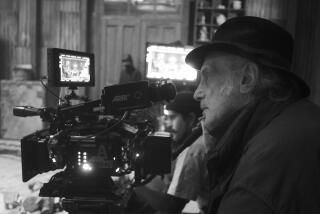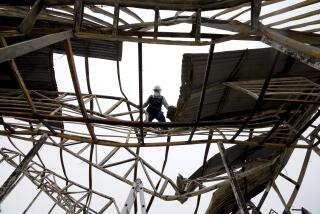Pablo Neruda’s grave is opened in inquiry into the poet’s death
The body of Nobel Prize-winning poet Pablo Neruda is being exhumed from his tomb in Chile on Monday morning in an attempt to discover whether he was poisoned by the regime of General Augusto Pinochet.
A team of forensic scientists will remove Neruda from his grave in the garden of Isla Negra, the poet’s beachside home on Chile’s coast, where Neruda is buried next to his wife, Matilde Urrutia.
The poet died suddenly on Sept. 23, 1973, at age 69, less than two weeks after the Sept. 11 military coup had brought Pinochet to power. Although Pinochet denied permission for a public funeral, Chileans disobeyed curfew to mourn the poet’s death. According to Neruda’s family, the poet had succumbed to prostate cancer, and this has remained the official story since.
[For the Record, 11:28 a.m. PDT, April 9: An earlier version of this post listed the date of Pablo Neruda’s death as Sept. 11. 1973. He died on Sept. 23, 1973.]
Two years ago, however, Neruda’s driver and bodyguard, Manuel Araya, made public his recollection that before Neruda died, doctors had injected him with a substance that caused his health to rapidly fail. Neruda, whose passionate verse ran hand-in-hand with an active involvement in leftist politics, was, Araya and others now suspect, eliminated to quash a potentially powerful dissident voice within the regime. Neruda was also a close friend of President Salvador Allende, who committed suicide rather than surrender to Pinochet.
Although it seems like little more than conspiracy theory, evidence that has surfaced since--including a newspaper report that refers to the injection--led to a judge ordering the exhumation in February. Neruda’s estate opposed the investigation, saying the claims of foul play are not believable, but has said it will cooperate. For her part, Matilde Urrutia, who died in 1985, had always denied that her husband died of cancer, though she never went as far as to say he was murdered.
The forensic investigators will look for signs of cancer, which could contradict Araya’s claim, as well as evidence of toxicity, which might support the theory of poison. The task is made more difficult by the passage of time, as well as by the lack of medical records at the hospitals where Neruda was treated before his death--which is itself suspicious, given Neruda’s cultural importance in Chile. Conclusions will likely not be reached for several months.
ALSO:
Kate Atkinson’s ‘Life After Life’ is a clever creation
After three decades, an e-book for Sandra Cisneros
Was Nobel Prize-winning poet Pablo Neruda poisoned?
More to Read
Sign up for our Book Club newsletter
Get the latest news, events and more from the Los Angeles Times Book Club, and help us get L.A. reading and talking.
You may occasionally receive promotional content from the Los Angeles Times.






